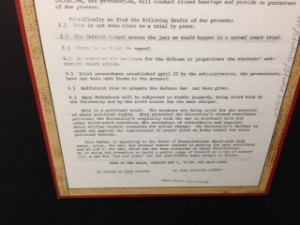When I think of the word controversy, I think of issues such as health care, abortion, gay rights, etc. However, there are a lot of other controversies that hit much closer to home, as well. Throughout the last couple weeks, my group tossed a lot of ideas around as to what controversy we can focus on with which we can survey students at Penn State. What do Penn State students have particular insight on? What might they care about?
One idea for our Unit 4 controversy is how many THON groups host parties with alcohol. Although there is nothing extraordinarily shocking about college kids drinking beer, drinking takes on a different light when it is done under an organization like THON. The Penn State Dance Marathon is a massive fundraiser to raise money to fight pediatric cancer. The slogan one can see everywhere around campus is “FTK:” For The Kids. Some people argue that people should not party with their THON groups because it is not “FTK-appropriate.”
Another controversy we discussed is the legalization of marijuana. It is not legal in some states to grow and/or use marijuana. With the passing of those laws came the increase in many people’s interest in the topic. Many people argue that marijuana is less harmful than alcohol, so since alcohol is legal for people over 21 years, marijuana should be, too. Others argue that marijuana is much more powerful than alcohol because it takes until someone abuses alcohol to feel its effects.
Personally, I think either of these controversies would arouse a lot of response from the people we interview. Both topics hit home with specific (and very prevalent) groups at Penn State. My concern about both controversies (but especially THON) is that people will not want to give information about it. We would keep everyone anonymous, but I feel that people will hesitate to tell of their personal experience with THON parties because they do not want to get anyone in trouble and/or they do not want to indicate that they had any part of it. And for the marijuana legalization controversy, people will probably hesitate to answer because as of right now, marijuana is still illegal in Pennsylvania. Anyone who argues that the government should legalize it might hesitate to have their name (or anonymous ideas) associated with the topic.

